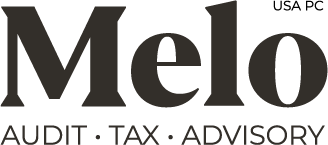Building credit for a small business is difficult, especially if you do not want to post a personal guarantee. It is possible, though, if the following guidelines are followed:
- Do not commingle personal and business credit. Commingling, or using personal funds for business purposes and vice versa, may result in losing the protection of your LLC or corporation due to “piercing the corporate veil.” If this happens, you may be personally liable for the company’s debts.
- Obtain a federal tax ID number, aka an employer identification number (EIN). An EIN works the same way as your Social Security number, except it is for your business.
- Have all your ducks in a row. Be sure to have all documentation, including any licenses, ready to show vendors and lenders. Vendors, lenders and banks will all do their due diligence prior to extending credit.
- Set up a bank account for the business. Before you decide which financial institution to use, think about the types of products you anticipate needing in the near term. Then determine whether they are available from the institution you prefer. You may be best served by a big bank, a community bank, a credit union or an online-only bank.
- Pay attention to your personal and business credit scores. Individuals have more than one credit score. These scores are calculated based on the information in your credit reports. According to the Consumer Financial Protection Bureau, if the information about you in each of the credit reports of the three large consumer reporting companies is different, your credit score from each of the companies will also be different. Lenders use slightly different credit scores for different types of loans. Personal business scores range between 300 and 850. Individuals should try to keep their scores at 680 or above. Business credit scores are called Paydex scores. Paydex scores, which are issued by Dun and Bradstreet, represent how likely it is the business will pay vendors and suppliers on time. The scores range between 0 and 100. Businesses with a score of 80 or more are considered low risk and are more likely than businesses with lower scores to get credit.
- Open a business credit card. Keep in mind that the card issuer may check your personal credit rating along with the business’s. This is because most business credit cards require a personal guarantee (i.e., the primary card holder — the business owner — will pay back any debts that the business cannot). Note that the business owner’s personal credit score may drop due to the credit check, but it usually will bounce back after a few on-time payments.
- Open an unsecured line of credit. For businesses, an unsecured line of credit provides access to money the business can use to address any business expenses that arise. The lender sets a limit on the amount that can be borrowed. The line of credit operates like a credit card in that the credit is available but interest only accrues when funds are drawn, and the balance is replenished when payments are made.
Get in touch with Melo USA PC for more ideas to help in all aspects of your business.
